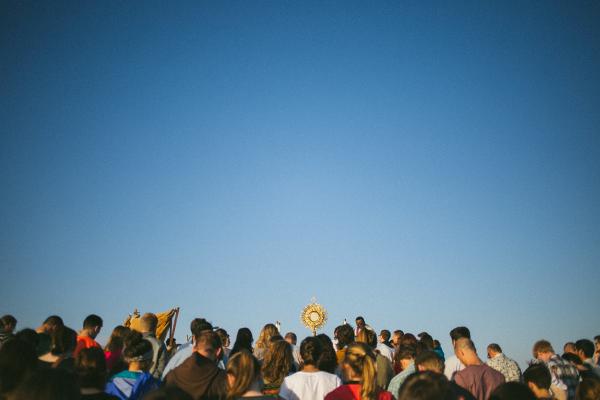Transforming America from its deeply rooted systemic racial and gender inequality to the Beloved Community, where all of God’s children are valued, will take more than prayer alone. It will take persistent prayers “without ceasing,” combined with relentless, righteous resistance.
Take the Brett Kavanaugh hearing: On agonizing display was unyielding patriarchal power drowning out the cry of sexual violence victim Dr. Christine Blasey Ford and millions like her. How painfully reminiscent it was of the Anita Hill/Clarence Thomas testimonies of 27 years ago — for the same prize. The message to both women telling their painful truths to the world was the same: “Have your say so we can get on with the vote.”
Twenty-seven years ago, as an African-American female clergy leader and legislative advocate, I operated in two worlds dominated by male power – religion and politics. I watched Anita Hill sit with the same quiet dignity as Rosa Parks resisting racial segregation on an Alabama bus by refusing to give up her seat to a white man. Rosa Parks went to jail. Anita Hill watched as Clarence Thomas was voted onto the U.S. Supreme Court. For both women, it looked like the dominion of male power had won.
But that is never the whole story, especially when the power of prayer is joined with righteous opposition. Though decades apart, Anita Hill and Rosa Parks were sustained in their “we shall not be moved” resistance by prayers of the faithful, worldwide. Rosa Parks’ bravery sparked the 381-day Montgomery Bus Boycott, igniting the civil rights movement and transforming American race relations. Anita Hill’s courage inspired women, like Sen. Dianne Feinstein (D-Calif.), to run for public office. These stories of bravery should remind people of faith, who feel overwhelmed by the stubborn persistence of racial and gender bias, of a hard truth: It takes the prayers of the faithful fused with righteous resistance to bring down, or at least cripple, systemic racial and gender inequality.
Watching Dr. Blasey Ford’s riveting testimony this past week forced me, like many women, to painfully relive my sexual assault story, and to recall similar stories told to me by far too many women in my life. Just as I prayed for Anita Hill, I also prayed for Dr. Blasey Ford, hoping the outcome would not be the same. Another influential man would ascend to even greater power while the voice of the accusing woman would be ignored. But in the words of a well-known Christian hymn, “God moves in a mysterious way. His wonders to perform.” Several factors, rooted in faith joined with resistance, caused a surprising halt to the fast-paced hearing. The prayers of Americans of diverse faiths, the righteous resistance of Dr. Blasey Ford, women on the Senate committee, women members of the House Representatives in the hearing room watching the proceeding, and protests by #MeToo movement-inspired sexual assault victims, all had an impact. But two other dynamics, rooted in faith, resistance, and friendship, caused Arizona Sen. Jeff Flake’s surprising request for a week’s delay for an FBI investigation. With members on both sides pressing him during the hearing break, the senator was cornered inside an elevator by the soul-piercing pleas of two women assault victims. A final encounter with his friend and Senate colleague, Chris Coons (D-Del.), who shares his commitment to bipartisanship, forced a pause in the hearing.
Whatever the outcome of the Kavanaugh vote, it is important to remember that prayer is the critical element in the daily lives of Christians. Consider the following:
- Prayer matters to God. The word prayer is mentioned more than 600 times in sacred scripture, more than words like faith, love, forgiveness, and heaven.
- Sacred scriptures underscore the enduring power of prayer to impact systemic societal evils. Nehemiah prayed, fasted, and organized the rebuilding of Jerusalem’s broken walls while resisting government officials attempting to block progress (Nehemiah 1:5-11; 4:1-6). Esther called for prayer and risked her life to save Jewish people from being wiped out. (Esther 5-10).
- Jesus’ ministry confronted systems that marginalized the poor, the stranger, the racially alienated, and women. He boldly announced the purpose of his earthly ministry in Luke 4:18 was “to set the captives free and release those who are oppressed.” Today we continue his ministry by working together and through prayer.
- Contemporary prayer movements like the “Reclaiming Jesus” elders proclamation on what it means to be a faithful follower of Jesus against systemic racism, sexism, and government abuse, are reaching and inspiring millions.
- Powerful resistance movements like #MeToo, which has toppled powerful men, and Black Lives Matter, which has cause policy makers to prioritize criminal justice reform, deserve much greater support from followers of Jesus. Both movements were built on the nonviolent strategies of the civil rights movement that was deeply rooted in prayer.
- Well before the civil rights movement, the British anti-slavery movement that abolished slavery and the American abolitionist movements included men and women of prayer like William Wilberforce, Frederick Douglass, and Sojourner Truth.
There is understandable anxiety today among many Christ-followers over what appears to be a deepening of systemic racial and gender bias in America, too often supported by some evangelicals. Hate crimes have increased according to the Center for the Study of Hate and Extremism, decades of civil and human rights progress are being reversed, and women alleging sexual assault against men in power are still generally not believed. At times like these, we are encouraged to remember Jesus’s encouraging words, “be of good cheer, I have overcome the world.” Praying for AND actively supporting resistance movements aimed at toppling systemic racial and gender inequality, are vital actions for overcoming evil in our world.
Got something to say about what you're reading? We value your feedback!






